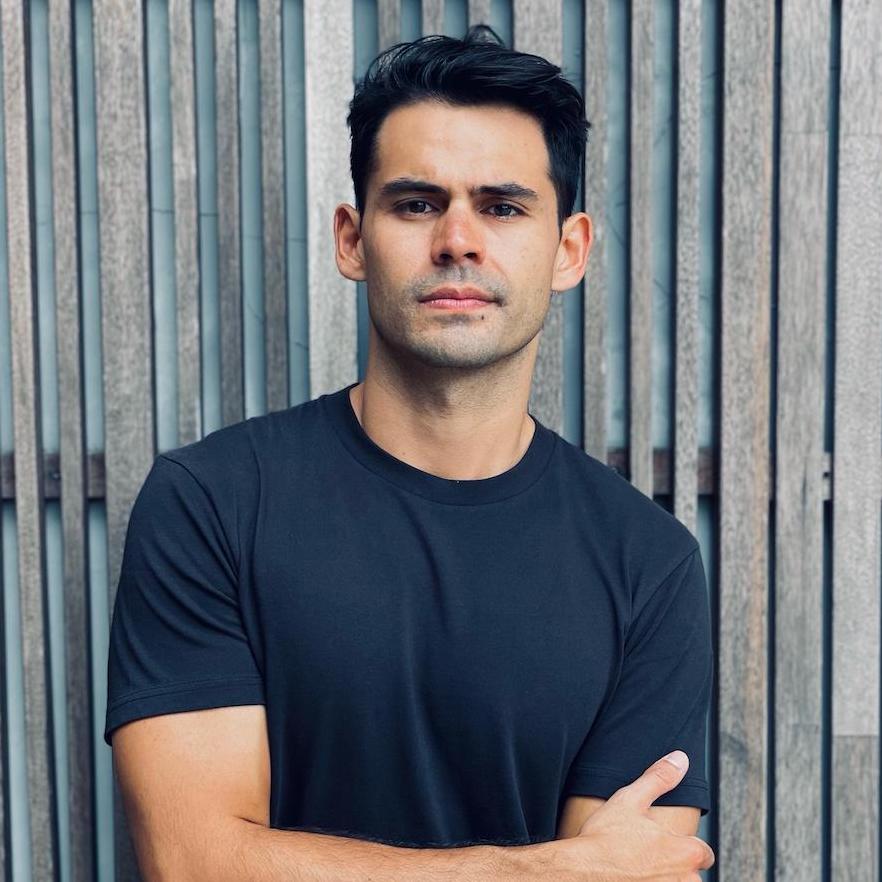Being stuck at home for so long, the dreams of travelling are keeping many people sane. Something to look forward to. No doubt Bali will be high on the list for many — but what will a visit to Bali look be like, post-Covid crisis?
Listen to this article on the NOW! Bali Podcast (Episode 8)
Available on your preferred Podcast Platform:
• iTunes • Spotify • Google Podcasts • Pocket Casts • Radio Public
Of course, it’s all speculation. None of us know what the world will be like; we cannot even begin to fathom what the ‘new normal’ of our everyday lives will be like, let alone the prospect of a holiday. However, as 80% of Bali’s economy is dependent on the tourist industry, posing this question and planning for the future is absolutely imperative. Many livelihoods depend on it.
Bali’s travel and tourism industry has already planned some areas, identifying what will be expected from the island and what changes need to be made on both public and private institutional levels. With input from industry professionals, from hygiene experts to hotel managers, we share a glimpse of what a trip to Bali in the future might be like. Potential changes that would alter the very experience of the island, but also possibly pivot the island’s tourism industry in the direction it needs to go.
New Expectations
It’s estimated that by June, Indonesia’s domestic travel might begin, with some flights resuming, allowing tourism players to warm up and stretch their legs again. But it won’t be until around October, or even 2021, where international tourism has a regular flow again. Again, speculation based on current projections.
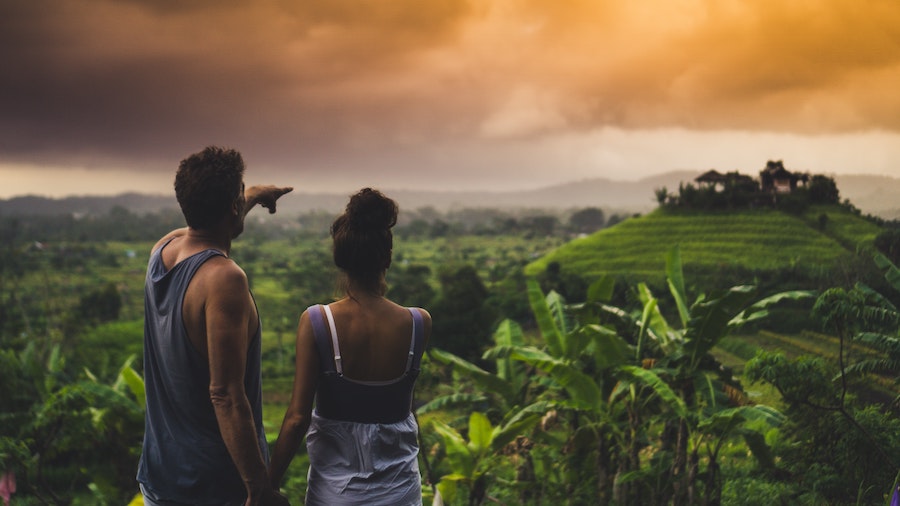
Nonetheless, before any of that is possible, the tourism industry in Bali will have to jump through some new hoops if its expected to get anyone to holiday on the island. Hotels, resorts, parks and restaurants will all need to implement new practices of health and hygiene to give visitors and their home governments the confidence needed to allow them to travel to Bali. It’s likely these new safety measures will have to be audited, certified (either by the government, or a government approved body) and approved by an internationally recognised company. This will become the new seal of approval for travellers – in the same way people look for Halal restaurants, for example. Far more important than your average Trip Advisor status.
It will be the goal for Bali, and any destination in fact, to not just appear safe, trust-worthy and credible in the eyes of the traveller and the global travel industry but to actually be certified that they are. To gain the market confidence and say that everything is ready to restart again, safely and securely.
Untouchable
The experience of staying in a hotel or resort is likely to be very different as well. In the same way that security guards and metal detectors at hotel entrances came about after the Bali bombings in 2002, temperature and health checks may just be the new norm, along with other health-related practices.
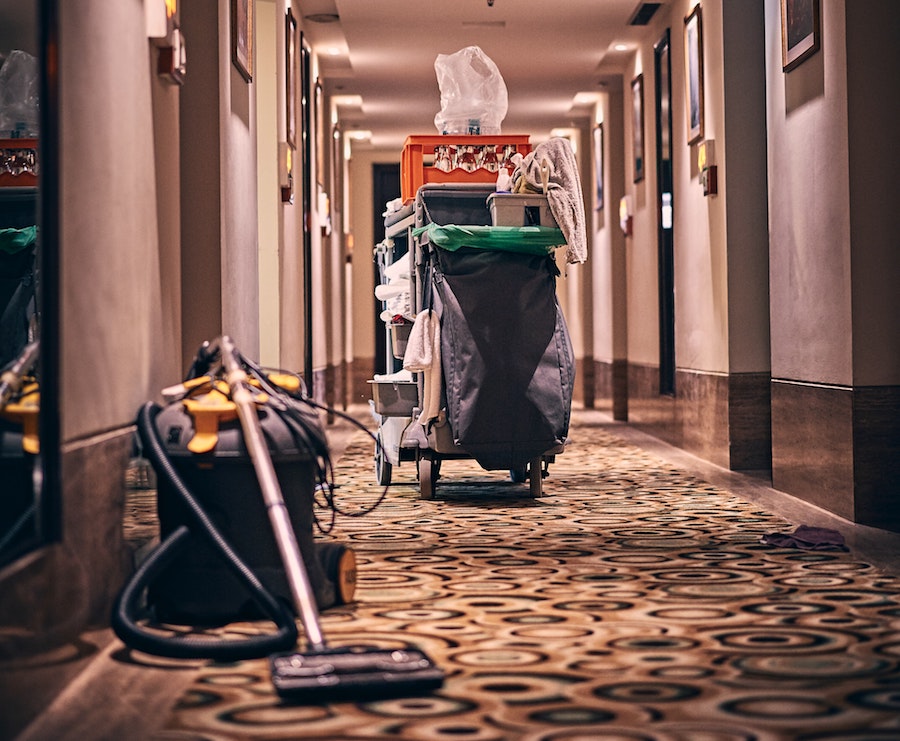
Yes, the hospitality industry may have to reel back what they’re best at, the ‘personal touch’ – because touch is the ultimate taboo in Corona times. Those warm smiles at reception may be hidden by masks, or that friendly welcoming handshake from the general manager, reduced to but a bow or a namaste (doubtful you’ll be offered a welcoming elbow or foot as is the norm amongst friends!)
Social distancing will likely continue, meaning standing further back at the reception desk; the glorious buffet breakfasts we all love may be deemed too high a risk. With all that open food and gathering at the egg station. And swimming pools… how to manage social distancing in the water still remains a mystery.
To keep up the new hygiene regulations, wiping down of surfaces will be frantic – the house keeping personnel the new ‘frontliners’ in their attempt to keep desks, beds and towels sanitised. Door handles and lift buttons, anywhere hands and fingers come in frequent contact, will receive lots of attention. Upon check-in or cleaning, your room may be sealed to prove that no one has been inside since the clean.
This article is part of our June Issue ‘Bali: The Restart’.
Read Online Now!
The Good News
We’ve painted a bleak picture so far — hotels run like hospitals, with guests unable to mingle and socialise. It will feel awkward at first, but without a doubt we will adjust to the ‘new normal’ of travel. It’s all for the sake of reducing risk and making the traveller feel at ease; besides, the warm glow of Balinese hospitality will certainly find a way to shine in other ways!
Actually, the changes that may need to be implemented can be incredibly positive for the future of tourism in Bali, improving the traveller’s experience enormously. In the same way working from home created a massive digital acceleration (in both systems and services) for businesses, the changes needed to ensure health for travellers can also accelerate the improvement of tourism’s infrastructure, systems and services.
Here are some examples.
Starting at the airport, to minimise grouping, immigration, customs and baggage claim will all have to be seamless — long lines of people queuing side-by-side would make Bali a quick blacklist for travellers. These will have to be made incredibly efficient and timely, with many functions done online before even arriving.
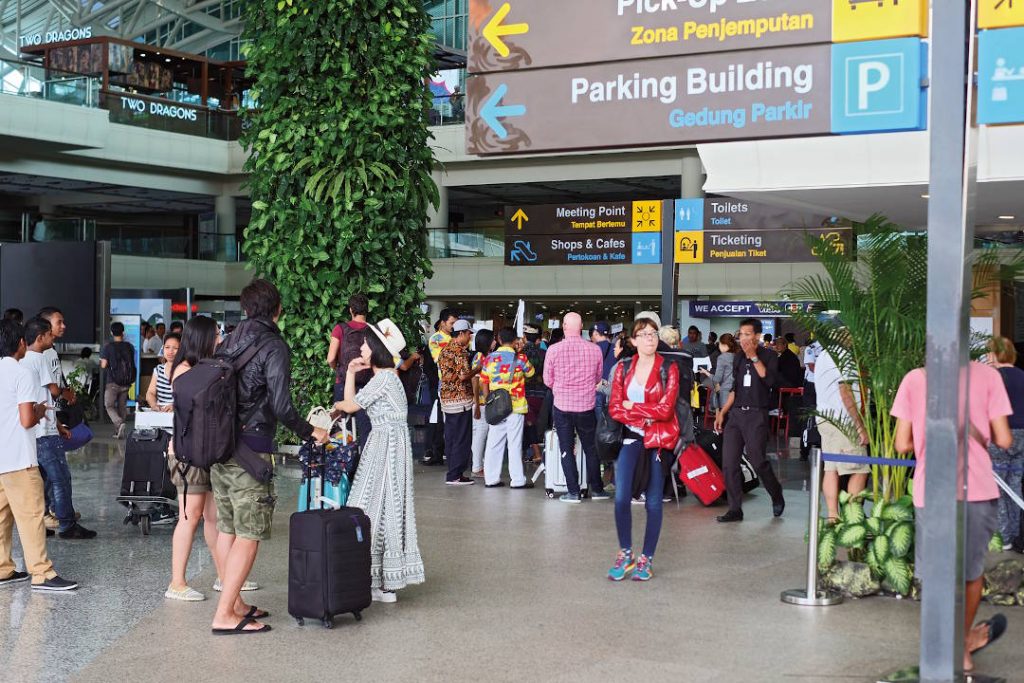
The same goes for the transportation out of the airport. Lurking taxi drivers will not be allowed to
linger in groups outside arrival gates, instead, transportation will have to be booked in advance or through an App — then the pick-up will have to be swift, too. This will see messy crowds, traffic and general inefficiencies normally experienced at the Bali airport disappear – which has always been a terrible first impression upon arrival.
Guides and drivers will fall under similar regulations, creating a higher standard for this segment of the industry as they are forced to improve their services and their infrastructure — that is, if they want guests to trust them.
Responsible Tourism
With big crowds now on the Covid-19 blacklist, this could mean the end of ‘mass tourism’; great news for Bali, as the island was already receiving negative backlash from overdevelopment. This means that tourist destinations which normally welcome endless crowds descending buses, funnelling into places like Uluwatu Temple, Lempuyang Temple and Tegallalang, will have to be managed and controlled.
Quotas on daily visits, which would have to be pre-booked, would help keep the numbers down — but this results in a far more enjoyable experience for those who are there, it means they can stay longer, wander, explore, undisturbed by hordes of quick-stop tourists. It’s an opportunity for the big tourism destinations to improve their visitor experience. On top of that, new regulations give Bali an excuse for ‘visitor management’, i.e. implementing expectations of respectful behaviour on top of new safety precautions. We could adopt a ‘Bali Pact’, which binds travellers to abide by clear rules of behaviour before staying in Bali — much the same as implemented by Bhutan.

Yes, curbing of the numbers will play a huge part in the future of Bali tourism (which we will cover in following articles). Ultimately, with quantity out of the picture, Bali will have to focus on quality tourism to get the best bang for the buck. This can be in the form of higher paying tourists, or longer staying tourists, both of which take the strain off of Bali’s already stretched resources.
Again, this is all speculation — but post Covid-19 recovery can be turned into a huge opportunity for Bali. With the added expectation and necessity to ensure guests their health and safety, Bali has the means to really upgrade the experience it offers to visitors.
Read our June Issue ‘Bali for free here:
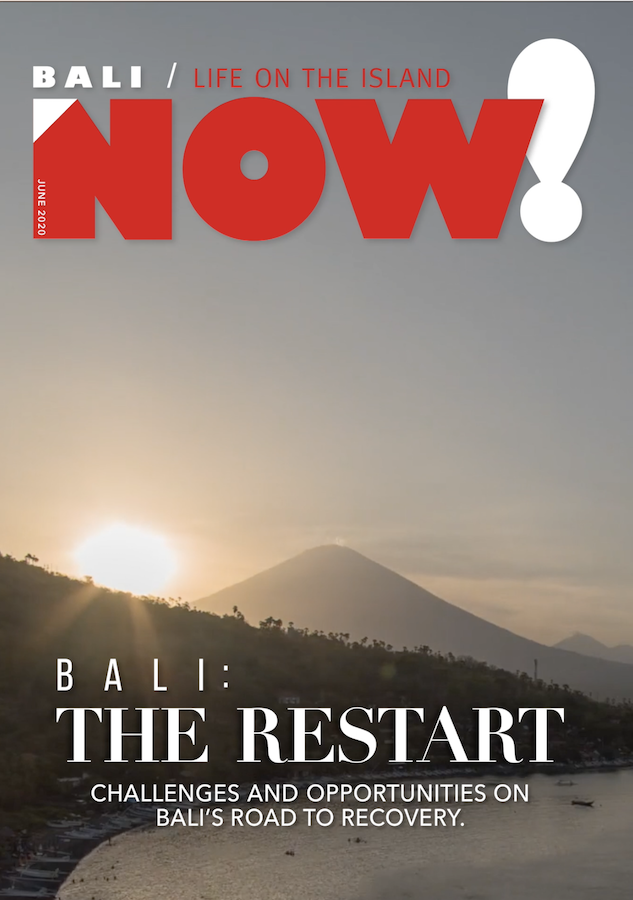
In this issue we share insight from experts and island-insiders on sustainability, destination management, environmentalists and more to explore the many ways Bali’s ‘restart’ paves the way for a better, brighter future.
Read Now

